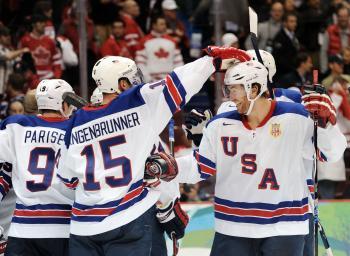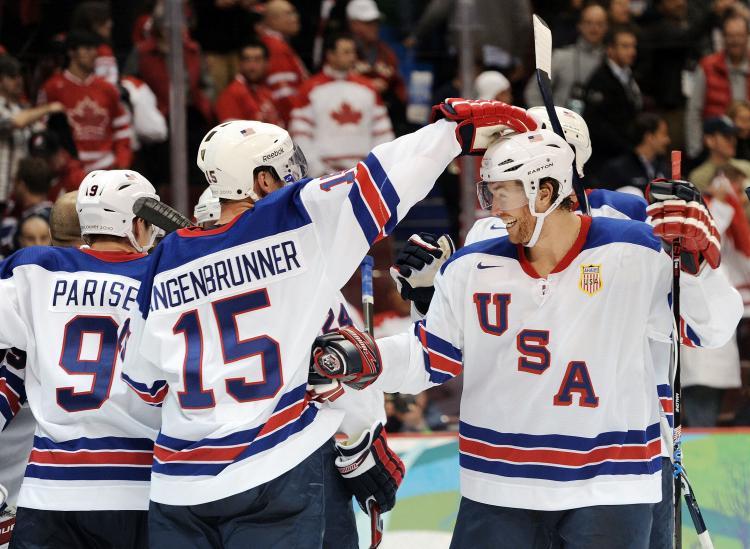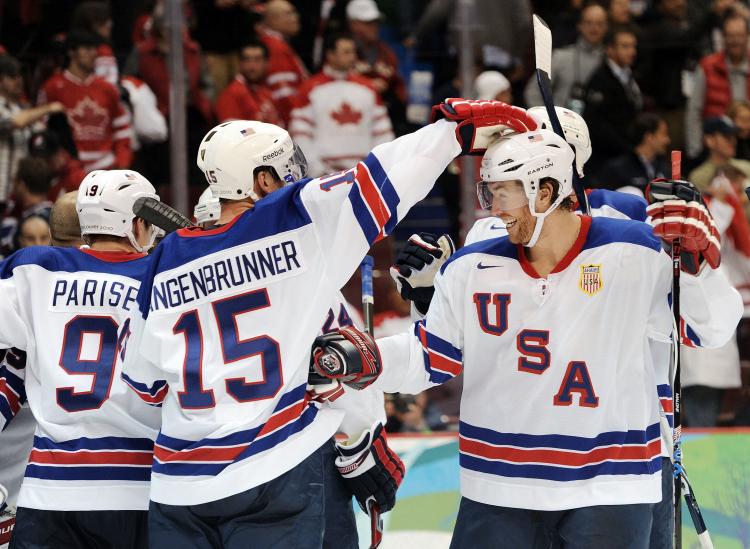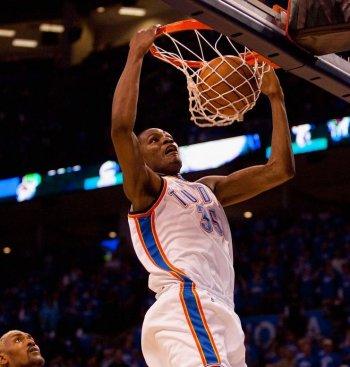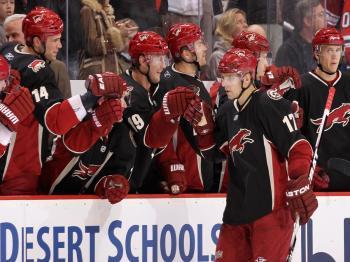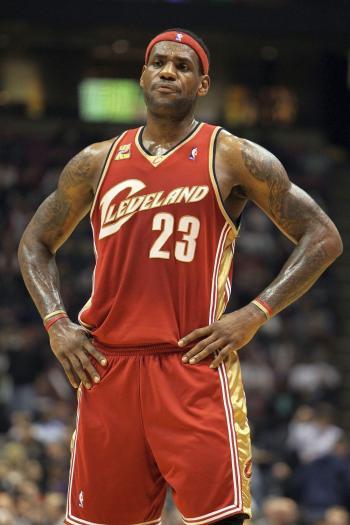With Monday being the 30th anniversary of the Miracle on Ice, it was fitting that the U.S. men’s Olympic ice hockey team defeated Canada 5–3 on its eve.
Hockey doesn’t dominate the American consciousness but you couldn’t tell on Monday as American and Canadian “clones” on Jim Rome’s syndicated Jungle radio show traded verbal barbs back and forth and ESPN Radio’s Mike and Mike morning show led off with the USA’s big win.
It’s easy to think of the win as one of the biggest in the history of American hockey—some have even referred to it as the Miracle on Ice II—but the enormity of the original miracle easily eclipses that of the victory over host Canada in 2010.
When the U.S. men’s ice hockey team defeated the Soviet Union on that fateful Feb. 22, 1980, at the Lake Placid Winter Olympics it was notable on a number of fronts.
The States, comprised of amateurs, beat arguably one of the best international hockey teams of the time and advanced to play Finland to win their second gold medal in ice hockey at a Winter Olympics.
The event was so monumental that it was named the International Ice Hockey Federation’s (IIHF) No. 1 story of the century.
“The victory by the Herb Brooks-coached squad of college kids over perhaps the most powerful USSR national team ever assembled has reached mythic proportions,” the IIHF explained.
Let’s not forget the political landscape at the time as the U.S. and the Soviet Union were in the heat of the Cold War.
“We didn’t realize that as players, but as you get older, you understand how important legacies in life become,” 1980 U.S. goalie Jim Craig told USA Today.
“It gets more and more important to us.”
Still, there are similarities between the two teams.
While the late-Herb Brooks took a bunch of “college kids” to the gold medal in 1980, current bench boss Ron Wilson is doing something similar with a group of younger and less experienced NHLers.
U.S. General Manager Brian Burke made the unprecedented move of excluding a lot of tested veterans such as Bill Guerin and Mike Modano when he announced the team back on New Year’s Day, opting for younger faces.
“It’s definitely a young group but hopefully that brings some enthusiasm,” Burke was quoted as saying in the Wall Street Journal.
“Sometimes when you are young you don’t know any better than to go all out.”
The players like the fact that there aren’t as many veterans around because it leads to a more relaxed atmosphere.
“You’re not with a lot of veteran guys that you have to tiptoe around,” said forward Bobby Ryan.
“You’re comfortable with each other. It absolutely helps cohesion.”
Craig backstopped the 1980 team to gold and Ryan Miller looks to be on pace to do the same for the current iteration of Team USA.
Miller was spectacular against Canada on Sunday, pulling off 42 saves.
Miller said that he and his teammates weren’t ready to celebrate yet.
“There really wasn’t really much celebration,” Miller told ESPN.
The win on Sunday allowed the U.S. to finish the preliminary round ranked No.1 and get an extra day of rest before the quarterfinals.
Common opinion is that Team USA’s 5–3 win over Canada is the start of something very good. With an extra day of rest and a rematch against Switzerland in the quarterfinals on Wednesday and a semifinal matchup that would avoid the likes of Russia, Sweden, or Canada, things are looking promising.
Hockey doesn’t dominate the American consciousness but you couldn’t tell on Monday as American and Canadian “clones” on Jim Rome’s syndicated Jungle radio show traded verbal barbs back and forth and ESPN Radio’s Mike and Mike morning show led off with the USA’s big win.
It’s easy to think of the win as one of the biggest in the history of American hockey—some have even referred to it as the Miracle on Ice II—but the enormity of the original miracle easily eclipses that of the victory over host Canada in 2010.
When the U.S. men’s ice hockey team defeated the Soviet Union on that fateful Feb. 22, 1980, at the Lake Placid Winter Olympics it was notable on a number of fronts.
The States, comprised of amateurs, beat arguably one of the best international hockey teams of the time and advanced to play Finland to win their second gold medal in ice hockey at a Winter Olympics.
The event was so monumental that it was named the International Ice Hockey Federation’s (IIHF) No. 1 story of the century.
“The victory by the Herb Brooks-coached squad of college kids over perhaps the most powerful USSR national team ever assembled has reached mythic proportions,” the IIHF explained.
Let’s not forget the political landscape at the time as the U.S. and the Soviet Union were in the heat of the Cold War.
“We didn’t realize that as players, but as you get older, you understand how important legacies in life become,” 1980 U.S. goalie Jim Craig told USA Today.
“It gets more and more important to us.”
Still, there are similarities between the two teams.
While the late-Herb Brooks took a bunch of “college kids” to the gold medal in 1980, current bench boss Ron Wilson is doing something similar with a group of younger and less experienced NHLers.
U.S. General Manager Brian Burke made the unprecedented move of excluding a lot of tested veterans such as Bill Guerin and Mike Modano when he announced the team back on New Year’s Day, opting for younger faces.
“It’s definitely a young group but hopefully that brings some enthusiasm,” Burke was quoted as saying in the Wall Street Journal.
“Sometimes when you are young you don’t know any better than to go all out.”
The players like the fact that there aren’t as many veterans around because it leads to a more relaxed atmosphere.
“You’re not with a lot of veteran guys that you have to tiptoe around,” said forward Bobby Ryan.
“You’re comfortable with each other. It absolutely helps cohesion.”
Craig backstopped the 1980 team to gold and Ryan Miller looks to be on pace to do the same for the current iteration of Team USA.
Miller was spectacular against Canada on Sunday, pulling off 42 saves.
Miller said that he and his teammates weren’t ready to celebrate yet.
“There really wasn’t really much celebration,” Miller told ESPN.
The win on Sunday allowed the U.S. to finish the preliminary round ranked No.1 and get an extra day of rest before the quarterfinals.
Common opinion is that Team USA’s 5–3 win over Canada is the start of something very good. With an extra day of rest and a rematch against Switzerland in the quarterfinals on Wednesday and a semifinal matchup that would avoid the likes of Russia, Sweden, or Canada, things are looking promising.
